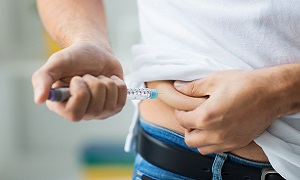Best Doctors in India for Diabetes treatment
Best Hospitals India for Diabetes Treatment
- City: Bengaluru, India
Hospital Highlights:
- Fortis Hospital Bannerghatta, Bengaluru was established in 2006.
- The hospital is a 276 bedded multi-specialty tertiary care facility.
- The hospital specializes in cutting-edge medical technology and dedicated patient care services.
- The hospital is equipped with state-of-the-art technologies like trans-radial angioplasty, trans-abdominal cardiac surgery, and computerized TKR navigation surgery.
- The hospital provides specialty medical services in cardiology, cardiac surgery, orthopedics, neurology, neuro-surgery, GI, and Minimal Access Surgery (MAS).
- City: Chennai, India
Hospital Highlights:
- Fortis Malar was established in 1992 and was formerly known as Malar Hospital.
- The hospital specializes in cutting-edge medical technology and dedicated patient care services.
- The hospital is multi-specialty, tertiary care facility with 180 beds.
- The hospital offers comprehensive medical care in specialties such as cardiology, cardio-thoracic surgery, neurology, neurosurgery, orthopedics, nephrology, gynecology, gastroenterology, urology, pediatrics, and diabetes.
- City: New Delhi, India
Hospital Highlights:
- Established in 1996, Pushpawati Singhania Research Institute is one of the top hospitals in the NCR region, as well as one of the top facilities in India for gastroenterology. The hospital is one of South Asia’s first institutes in medical and surgical treatment for diseases related to digestion.
- The hospital is equipped with state-of-the art facilities coupled with the latest equipment as well as renowned consultants from various parts of India as well as other parts of the world.
- City: New Delhi, India
Hospital Highlights:
- State-of-the-art technology and devoted healthcare professionals have been brought together under one roof at Venkateshwar Hospital to provide genuine medical care. The hospital’s professionals work together as a team to deliver the best possible treatment to their patients, using the most sophisticated equipment and information technology.
- Venkateshwar Hospital’s mission is to attain global excellence in healthcare by employing evidence-based, ethical clinical practices and cutting-edge technology by a team of highly skilled experts.
- City: New Delhi, India
Hospital Highlights:
- Sir Ganga Ram Hospital, New Delhi is known to provide the latest medical procedures with the latest technology in all of its units.
- The hospital has a team of reputed doctors, nurses, and healthcare professionals that ensure that patients receive quality care at affordable costs.
- Staffed with a team of highly qualified doctors, dedicated nurses, and paramedical and non-medical staff, the hospital aims to lead in healthcare delivery, medical education, training, and research.
- As per the vision of the founder, the hospital also provides free treatment to the economically weaker sections of society.
- Sir Ganga Ram Hospital also provides training to young doctors under the Diplomate in National Board(DNB) program. The DNB program at the hospital was started in 1984 and it is known for currently running the maximum number of DNB specialties in the country. It also has the distinction of having the first bone bank in India.
- City: Kerala, India
Hospital Highlights:
- Established in 2019, Apollo Adlux Hospital is the first Apollo Hospital in Kerala and the 73rd hospital owned by Apollo Group in India. With the state’s most advanced, comprehensive healthcare infrastructure and cutting-edge technologies, Apollo Adlux Hospital stands as an example of medical excellence in Kerala.
- With over 34 multi-specialty departments, the hospital believes in providing the best quality treatment to its patients at affordable rates, ensuring comfort at their difficult times.
- The 300-bed hospital is managed by a team of highly qualified and experienced experts who delivers exceptional hospitality to their patients and treats them with great compassion.
- With its affiliation with the Apollo Hospitals Group, the hospital aims in providing patients with top-notch healthcare services while also serving communities in Kerala.
- The hospital has good railway and road connections, and is conveniently close to Cochin International Airport.
- City: Gurugram, India
Hospital Highlights:
- Situated near DLF Cyber City, Gurugram, Narayana Superspecialty Hospital is one of the top medical facilities in the Delhi NCR region, catering to the needs of the people. Known for its commitment to quality medical care and patient service, the hospital is a state-of-the-art facility with planned and well-equipped sections, which includes a spacious OPD area as well as comfortable patient rooms.
- It is the closest super-specialty hospital from Indira Gandhi International Airport towards Gurugram, and also the nearest super specialty hospital from DLF Cyber City. It is also close to major residential areas in Gurugram.
- It is part of the renowned Narayana Health Group. Established in 2000, by Dr. Devi Shetty, a renowned cardiac surgeon, it has grown to be one fo India’s leading healthcare groups.
- City: Noida, India
Hospital Highlights:
- Fortis Hospital, Noida, stands as one of the oldest and most trusted healthcare institutions in the region, setting a benchmark for comprehensive medical care.
- As the second mega hub hospital in the Fortis Healthcare Group, Fortis Hospital, Noida, upholds a legacy of trust among more than 1.2 million patients. By integrating top-tier professionals with cutting-edge technology, the hospital delivers superior treatment across various medical disciplines.
- Specializing in advanced Neurosciences, Orthopedics, Kidney and Liver Transplant Programmes, Fortis Hospital, Noida has successfully performed over 1,500 transplants, solidifying its reputation as a leader in specialized medical interventions.
DIABETES
Diabetes mellitus or diabetes is a metabolic condition characterized by high blood sugar (blood glucose) levels associated with other manifestations. It affects the way your body uses blood glucose.
Glucose is a fundamental source of energy for the cells that form your tissues and muscles. Hence, it is absolutely necessary for the body and is the main source of fuel for functioning of the brain.
Depending on the type of diabetes, the causes of the disease vary. It leads to high sugar levels in your blood, which may cause serious health complications. Insulin is a hormone that takes sugar into the cells for storage to be used for energy later.
Types of Diabetes
Chronic diabetes is of two types- Type 1 Diabetes and Type 2 Diabetes. There are also reversible diabetes conditions comprising prediabetes and gestational diabetes.
Type 1 Diabetes: It is an autoimmune disorder in which the immune system attacks and destroys the pancreatic cells. These cells make insulin. Nearly 10% of the population suffering from diabetes has Type 1 Diabetes.
Type 2 Diabetes: When the body becomes resistant to insulin and sugar builds up in the blood, the person suffers from Type 2 Diabetes.
Prediabetes: When the blood glucose is higher than normal but not high enough to categorize as Type 2 Diabetes, the person has Prediabetes.
Gestational Diabetes: When a pregnant woman has high blood sugar, she is suffering from Gestational Diabetes. The cause behind the gestational diabetes is the insulin-blocking hormone produced by the placenta. This type of diabetes resolves when the gestation period (duration of pregnancy) ends after the delivery of the baby.
Symptoms of Diabetes
The increase in the blood sugar level governs the symptoms of diabetes. Patients of Prediabetes and Type 2 Diabetes may not suffer from any symptoms initially. However, the patients experience the symptoms early in Type 1 Diabetes, which are severe. Let’s know the symptoms of Type 1 and Type 2 Diabetes.
- Increased hunger and thirst
- Blurred vision
- Fatigue
- Unexplained weight loss
- Irritability
- Sores that heal slowly
- Frequent urination
- Frequent infections like a skin infection
Causes of Diabetes
Type 1 Diabetes : The immune system plays a vital role in fighting against viruses and bacteria. However, in Type 1 Diabetes, the immune system attacks and destroys the cells present in the pancreas and responsible for producing insulin. Because of this, only a little insulin is present in your body. Also, the sugar builds up in the blood rather than getting transported to the cells. Genetic susceptibility and environmental factors are responsible for Type 1 Diabetes.
Prediabetes : Prediabetes often leads to Type 2 Diabetes.
Type 2 Diabetes : The cells acquire resistance against the action of insulin in this type of diabetes. The pancreas cannot make enough insulin to prevent this resistance. The sugar builds up in the blood rather than transporting to the cells for energy. Environmental and genetic factors cause Type 2 Diabetes. Obese people have higher chances of developing this type of diabetes. However, not every person suffering from Type 2 Diabetes is obese or overweight.
Gestational Diabetes : To maintain the pregnancy, the placenta produces hormones during the gestation period. Your cells become more resistant to insulin because of these hormones. The pancreas produces extra insulin to outscore this resistance. When the pancreas is not able to keep up very little amount of glucose enters the cells leaving behind much of it in the bloodstream. This causes Gestational Diabetes.
Diagnosis of Diabetes
The symptoms of Type 1 Diabetes appear early and often compel the patient to check for his/her blood glucose levels. Contrary to this, the symptoms of Type 2 Diabetes and Prediabetes are gradual. Screening of the following people is a must:
- People who are more than 45 years old must check for the symptoms of diabetes and undergo screening for blood sugar levels. If they find the blood sugar levels normal, then they must undergo screening every three years.
- A person who has Prediabetes must check for Type 2 Diabetes once in a year.
- People with a BMI (Body Mass Index) of more than 25 (23 for Asian-Americans) having additional risk factors like heart disease, high blood pressure, or abnormal cholesterol levels must undergo screening for diabetes.
- Women who suffer from gestational diabetes must check for diabetes every three years.
Treatment Options for Diabetes
A healthy and balanced diet along with an exercise regime is a significant part of managing diabetes and your health.
Treatment Options for all types of Diabetes.
Healthy diet
There is no specific diet that you must follow for diabetes. Vegetables, fruits, whole grains, and proteins are the core of a balanced and healthy diet. They are high in fiber and provide nutrition to the body. The diet is low in calories and fat while cutting down saturated fats and refined carbohydrates. You must take sweets once in a while.













